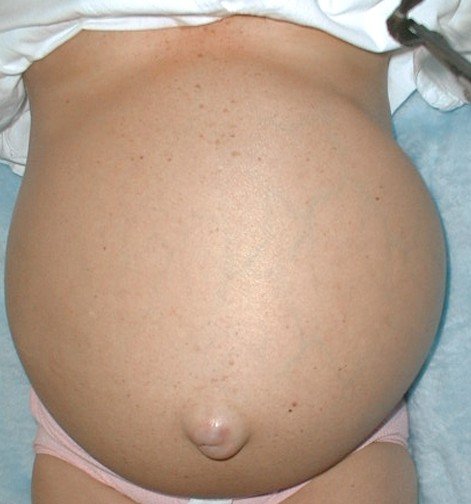Ascites
Ascites Definition
This is the build-up of additional fluid in your abdomen. It is also called your peritoneal cavity. This is not really a disease but more of a condition. When you have a mild case of ascites this extra fluid may not be easily noticeable. If you have a serious case your abdomen will protrude a lot. The fluid in your abdomen will either be pale, slightly straw colored, or clear. Your abdomen cavity can be found just below your chest cavity. Your diaphragm separates these two cavities.
Ascites Symptoms
If the case is mild you may have no symptoms. Ascites is considered a mild case if there is less than one hundred to four hundred ml in adults. As more fluid starts to accumulate you may have these symptoms.
- An increase in your abdominal size and girth.
- Abdominal discomfort
- Shortness of breath due to the increased pressure on your diaphragm from all the fluid build-up.
- Having pleural effusion which is fluid around your lung. This happens when the fluid gets pass your diaphragm and surround your lungs.
- A cosmetically disfigured large belly.
- Mental confusion
- Easy bruising
If the accumulation of fluid measures more than five hundred ml you can see bloating and abdominal pain. If the ascites is severe you will see abdominal heaviness and abdominal distension. If it is caused by a bacterial inflammation you may have a fever, weight loss, and fatigue.
Most of the symptoms that you will see with ascites will be related directly to the reasons that are causing this disease.
Ascites Causes
When a person has ascites the cause is either advanced liver disease or advanced cirrhosis of the liver, which is marked by liver tissues that are scarred and results in impaired liver function and blocked blood flow to your liver. This disease is usually the result of alcoholism. Approximately eighty percent of all ascites cases are thought to be because of cirrhosis of the liver. Many people, especially men, will joke about having a “beer belly” but could be ascites.
You could also have this fluid accumulation due to congestive heart failure. With congestive heart failure you may also see an accumulation of fluid in your wrists, feet, hands, and ankles. You can also have ascites because of abdomen cancer, tuberculosis, or pancreatitis. Another cause is advanced kidney failure due to the generalized retention of fluid in your body.
Other causes of ascites can include:
- Hepatitis
- Portal vein thrombosis which means having clots in the veins of your liver
- Liver cancer
- Ovarian cancer
Although it is not completely known what the exact mechanism of the development of ascites most suggest that the main contributor is portal hypertension, which is an increased pressure in the blood flow from your liver. Two other contributors are water retention and salt.
Diagnosis
When you see your physician for the accumulation of extra fluid in your body the first thing that he will want to do is determine if ascites is present and what is causing you to have ascites. You will usually have to undergo many different blood tests including a complete blood count (CBC). This particular blood test will be able to gauge factors accurately such as your ability for your blood to clot and how your liver is function. Your physician may have a paracentesis done. This procedure is done by inserting a needle into your abdomen which is used to remove a tiny amount of asciitic fluid. This fluid will be evaluated so they can find out specifically what is causing your case of ascites.
The fluid will be analyzed to see what your serum ascites albumen gradient (SAAG) level is which can be either high or low. It will help to determine what is causing your case of ascites. If the level is low it can suggest tuberculosis or cancer as the underlying cause. If the level is high it can indicate heart failure or liver dysfunction.
Ascites Pictures
Pictures collection of Ascites…
Ascites Treatment
If you are diagnosed with a severe case of ascites your physician will use paracentesis to extract slowly the excess fluid that is in your abdominal cavity. If you have a mild case your physician will have you on a diet that is low in sodium. You should limit your salt intake (sodium) to less than two grams a day. They will also prescribe a diuretic, which is a pill that will help get the fluid out of your abdominal cavity. This medicine will usually work by increasing the amount of urine you put out.
Other treatments include:
- For tuberculosis treatment you would be given antibiotics.
- To treat some hepatitis types you would take anti-viral medications.
- For a severe case of cirrhosis of the liver, having a liver transplant is the appropriate way to treat it.
When you know what is causing ascites and it is treated the pronosis is good. You will need to be monitored carefully to help prevent it from coming back. If the underlying cause cannot be found the treatment will focus on reducing the amount of discomfort you are in. Many times this condition will often signify an underlying cause that can shorten your life expectancy.


